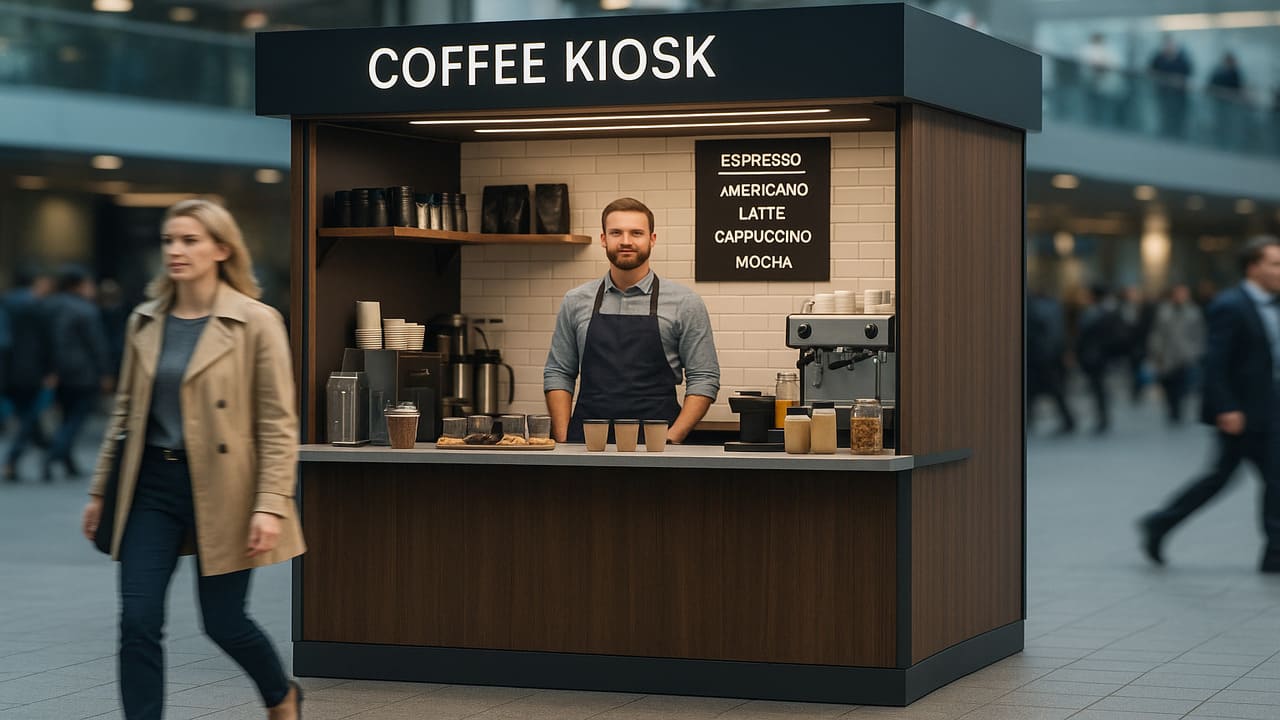
The Berkshire Mall – Coffee has long been more than just a morning ritual, it is a global culture that continues to expand. In modern cities, people crave both quality and convenience, making coffee kiosks an appealing solution. Unlike traditional cafés that require larger investments and extensive seating areas, Coffee Kiosk focus on delivering the essentials: hot espressos, flavorful lattes, iced blends, and small baked goods all within seconds.
Urban commuters, office workers, and students often look for fast, accessible options. A strategically placed coffee kiosk inside a subway station or mall atrium allows them to satisfy that craving without interrupting their schedules. The compact nature of a kiosk makes it easier to operate, cheaper to maintain, and more adaptable to high-traffic zones where traditional cafés cannot easily fit.
What makes a coffee kiosk attractive from a business standpoint is its lean and focused model. Instead of managing large overhead costs associated with rent and staff in big cafés, kiosk owners can work with smaller spaces and optimized equipment. The emphasis is on speed, accessibility, and reliability, providing customers with a grab-and-go experience.
The menu at a kiosk usually highlights essentials: freshly brewed coffee, classic espresso-based drinks, blended frappes, and light snacks such as croissants or muffins. While limited in scope, this concentration on best-sellers ensures consistency and faster service. Many kiosks also include modern features like digital payment systems or app-based preordering to enhance convenience for customers on the move.
Read More : Cell Phone Repairs: A Thriving Business Opportunity in Modern Shopping Malls
Starting a coffee kiosk is often seen as a practical entry point into the food and beverage industry. Entrepreneurs benefit from lower start-up costs compared to a full-sized café. The smaller footprint requires fewer staff members, which means more manageable payroll expenses and simpler training processes.
Another significant advantage is flexibility. Because kiosks can be set up in shopping malls, hospital lobbies, business districts, or even outdoor markets, owners can analyze foot traffic and position their business accordingly. If one location underperforms, the kiosk can be relocated more easily than a permanent café. This agility makes the concept attractive to both new entrepreneurs and seasoned investors seeking to expand their portfolio.
Despite their strengths, coffee kiosks are not without limitations. One of the main challenges lies in space constraints, which limit both storage and equipment capacity. Unlike larger cafés that can store multiple ingredients or experiment with complex recipes, kiosks must keep their menu concise to maintain efficiency.
Customer expectations can also be challenging. Some consumers still associate quality coffee with the full café experience—comfortable seating, ambiance, and Wi-Fi. Kiosk operators must therefore focus on delivering excellence in what they can control: quality beans, skilled baristas, and consistent service. Additionally, competition in high-traffic areas can be fierce, requiring careful branding and marketing to stand out.
The success of a coffee kiosk heavily depends on its placement. Ideal spots include high-traffic areas where people are likely to need a quick energy boost. Subway stations are prime examples, where thousands of commuters pass by each day. Similarly, malls and office towers provide constant streams of potential customers looking for coffee on the go.
Hospitals and universities are also increasingly targeted. In these environments, long shifts and busy schedules make convenient caffeine access invaluable. For maximum impact, kiosks often rely on partnerships with landlords or property managers to secure premium locations and long-term operating rights.
Also Read : Balut: The Filipino Delicacy That Terrifies Tourists Worldwide!
As consumer expectations evolve, so too will coffee kiosks. Many businesses are beginning to integrate sustainability into their operations, offering biodegradable cups, encouraging reusable mugs, and sourcing beans from ethical suppliers. Since kiosks operate on a smaller scale, they can adapt quickly to these eco-friendly practices and market themselves as socially responsible.
Technology will also play an increasing role. Mobile ordering apps, cashless kiosks, and even automated espresso machines could redefine how quickly customers receive their drinks. By combining sustainability, technology, and convenience, coffee kiosks are poised to remain a vital part of the modern coffee industry.
This Article About Coffee Kiosk Written by: Sarah Azhari | Editor: Micheal Halim
Information Source: enterpriseleague.com